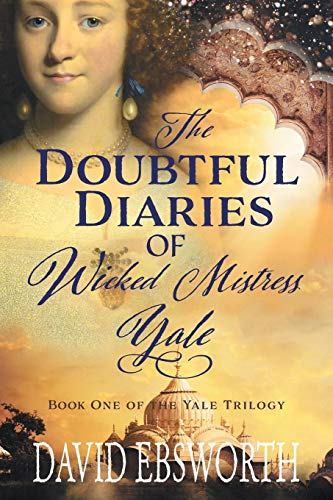The Doubtful Diaries of Wicked Mistress Yale (The Yale Trilogy)
1672, Madras, India. At the East India Company’s Fort St. George docks, Company recruits disembark from ferryboats. The Governor’s Second-of-Council, Joseph Hynmers, welcomes the arriving party and introduces his wife, Catherine. A young writer, Elihu Yale, catches Catherine’s eye. Due to a sudden downpour, Elihu takes hold of Catharine’s parasol and escorts her back to the fort. Joseph is impressed and invites Elihu for dinner. Joseph attends to Company business that involves not only trade, but making treaties with the local Gentues, Sultan, Mughals, Marathas, Dutch, and French, to keep the Company profitable. Catherine becomes involved in a bit of espionage, and when Joseph dies from an illness, Catherine and Elihu marry under a contract which Catherine drafts. Elihu is promoted to Governor, becoming involved in some shady dealings, including slave trading. Catherine accumulates some wealth of her own but is betrayed by her friends and even Elihu. She is determined to seek vengeance.
David Ebsworth mentions that he initially wanted to write about Elihu Yale, one of the founders of that famous Connecticut university. However, Ebsworth became more interested in Elihu’s wife, Catherine, upon reading the wealthy nabob’s will that says: “To my wicked wife …”
Ebsworth has used historical fiction tools skillfully to put together Catherine’s story, essentially from the blank space in the will. The diary format is used advantageously. While the major happenings at Fort St. George, as seen through Catherine’s eyes, are evocatively shown, the political activities and the wars with the neighboring Indian rulers are mostly told by Catherine as narrated to her by others. Readers will learn much about life in one of the East India Company’s outposts and should decide if Catherine was indeed a “wicked wife.” There will be more to discover in the forthcoming sequel. Recommended.










